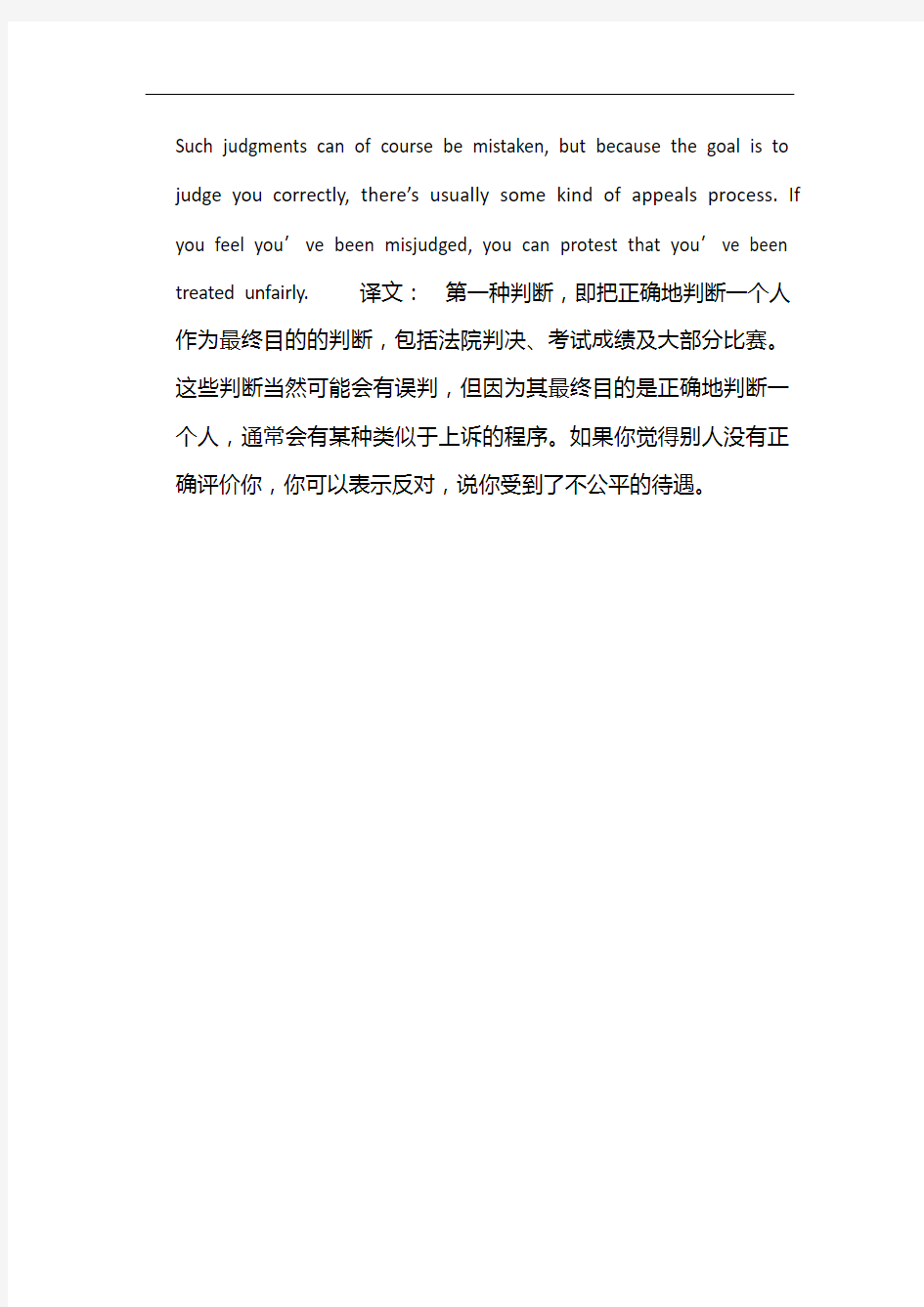

新视界大学英语综合教程2unit4
1.There are two different ways people judge you. Sometimes judging
you correctly is the end goal. But there’s a second much more common type of judgment where it isn’t. We tend to regard all judgments of us as the first type. We’d probably be happier if we realized which are and which aren’t. 译文:判断一个人有两种不同的方式,有时判断的最终目的是正确地判断一个人,不过另外一种则不是如此,并且这种判断要常见得多。我们往往认为所有的判断都属于第一种。如果能意识到哪些是第一种而哪些不是的话,我们也许会更幸福。
2.n. [C, U] an opinion that you have after thinking carefully about
something 判断;看法;评价例句:It is still too soon to form a judgment about this. 现在对此作出判断仍为时过早。例句:I respect his judgment and I’ll follow any advice he gives me. 我尊重他的判断能力,会接受他提出的任何建议。句子分析: 1.
Sometimes judging you correctly is the end goal. (Line 2, Para 1) This sentence means the purpose of the exercise is to judge your ability at a skill, or your guilt or innocence; the focus is on you. end goal: final purpose
3.2.The first type of judgment, the type where judging you is the end
goal, includes court cases, grades in classes, and most competitions.
Such judgments can of course be mistaken, but because the goal is to judge you correctly, there’s usually some kind of appeals process. If you feel you’ve been misjudged, you can protest that you’ve been treated unfairly. 译文:第一种判断,即把正确地判断一个人作为最终目的的判断,包括法院判决、考试成绩及大部分比赛。这些判断当然可能会有误判,但因为其最终目的是正确地判断一个人,通常会有某种类似于上诉的程序。如果你觉得别人没有正确评价你,你可以表示反对,说你受到了不公平的待遇。